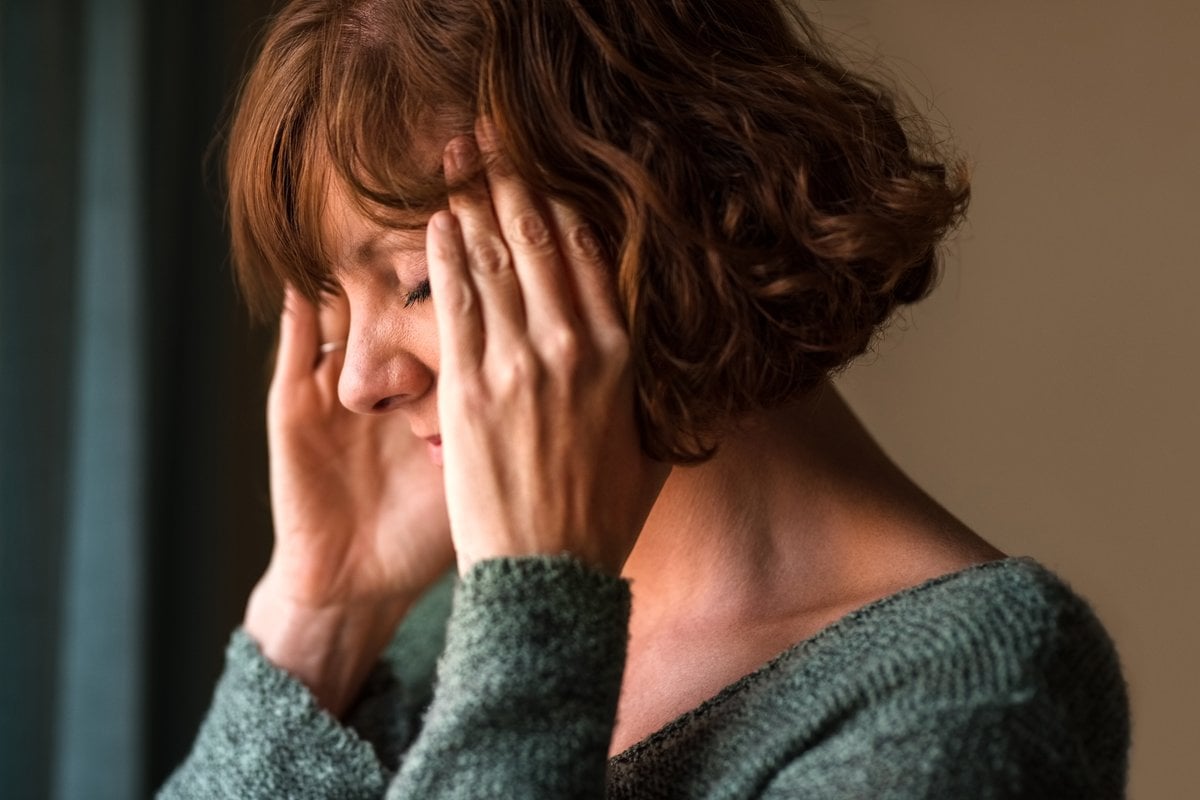
After experiencing occasional night sweats in the last two years, I am obsessed with finding out more about menopause, perimenopause, and the accompanying symptoms.
The surge in high-profile women like Marian Keyes, Gillian Anderson and Trinny Woodall chatting openly about their journey through menopause has also helped to bust long-held societal myths and taboos about what it means to be menopausal.
I devour their anecdotal stories in books, on podcasts, and on social media because I find it fascinating and also because I know that while the Australasian Menopause Society says the average age for a woman to go through menopause is 51, perimenopause can start up to 10 years beforehand.
So at 42, I need to get across it.
Watch: Supermodel Paulina Porizkova on ageing. Post continues below.
Ann Fletcher, 54, a team leader for a specialist homelessness service in Newcastle, had been dealing with mild perimenopausal symptoms since her mid-forties.
It ramped up in 2020 when she suddenly became so lethargic she could barely stay awake while driving her car.

Top Comments